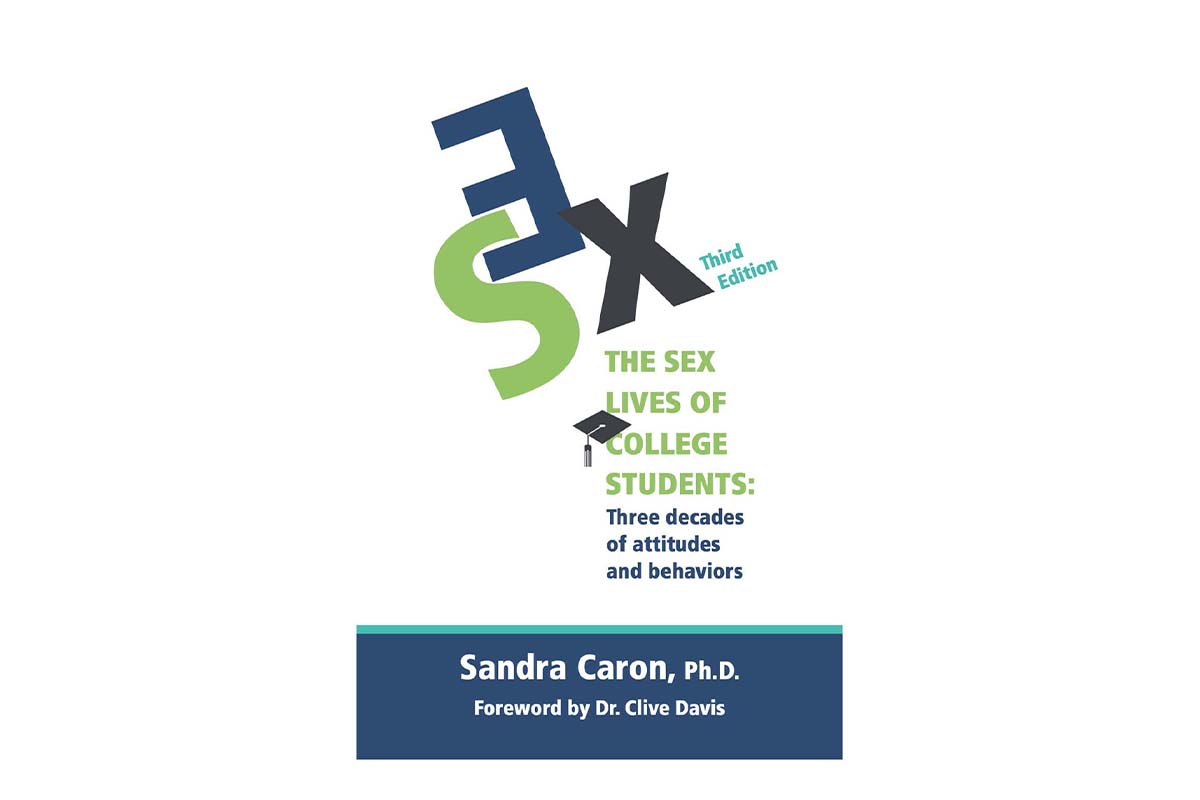
Caron shares 30 years of data in third edition of ‘The Sex Lives of College Students’
What do nearly 7,000 college students have to say about sex? How do they feel about it? How have the media and internet influenced their actions? Compared to 30 years ago, is sex really different today? “The Sex Lives of College Students: Three Decades of Attitudes and Behaviors” presents the results of a sexuality survey administered over the past 30 years to thousands of college students.
Sandra Caron, a professor of family studies and human sexuality at the University of Maine, has spent the past 30 years giving a 100-question survey to her college students. What she discovered from the more than 6,600 responses from students between the ages of 18-22 is a range of opinions and experience in sexual relationships. She’s outlined what she’s learned in the third edition of her book, “The Sex Lives of College Students.” The first edition covered two decades of research, from 1990 to 2010, while the second covered 25 years (1990-2015). The new edition includes three decades of college students’ sexual attitudes and behaviors (1990-2020).
According to Caron, while we may see sex more in movies, television, books, magazines and on the internet, young adults are still left asking questions and making assumptions. The book offers insight into the differences between college men and women, and interesting trends in students’ attitudes and behaviors. Because of its longevity, the survey includes not only the views of today’s college students, but also those of their parents’ generation.
“The survey data serves as a reality check on the sex lives of college students,” Caron says. “Despite the perception that all college students are regularly hooking up, their responses indicate that, overall, they are neither feeling overly liberated sexually nor jumping into bed with multiple partners. Instead, the survey shows a range of opinions and experience in sexual relationships.”
The book, published by Maine College Press, uses colorful illustrations and infographics to present the survey findings in an easy-to-understand manner. Each page begins with a sex question for the reader to consider and serves as a discussion-starter for people of all ages.
That discussion is important, Caron says. For instance, across 30 years, friends have remained the most important influence on college students’ sexual attitudes, especially same-sex friends. Few college students feel their parents or schools played an important role in their sexual development.
“Despite years of advocating the importance of parents as sexuality educators of their children there has been very little change. Across the decades, the proportion of students who report they have asked their parents questions about sex has remained virtually unchanged,” she says.
Faking orgasm is another area where the statistics reveal interesting attitudes and behaviors among college students, Caron notes. Despite the sexual revolution and what appears to be more openness concerning relationships, the surveys show that a quarter of men and two-thirds of women say they have faked orgasms. Those numbers have gone up — not down— over the 30 years.
“That tells us that we’ve lost touch with what sexual relationships are supposed to be about— enjoying ourselves rather than faking pleasure and satisfaction,” Caron says.
The survey findings reveal that some college students today are simply performing sex.
“Without the proper guidance of parents and schools, many young people have been misled by the acting world of pornography, which is designed to be stimulating fantasy for adults,” says Caron. “Somewhere along the line, we forgot to tell young people that it is not intended to be sex instruction, because for too many college students it serves as their primary foundation for sexuality education.”
Caron’s colleague Sid Mitchell, an associate professor of education at UMaine, served as data consultant on the book, helping organize data and assisting in analysis. Former editor of The Journal of Sex Research, professor Clive M. Davis wrote the book’s foreword, explaining both the uniqueness and significance of Caron’s research findings. There’s also a companion website with the original sex survey questions, a Q&A with professor Caron and more content featuring noted sexuality professionals, including William L. Yarber, senior scientist and provost professor with the Kinsey Institute.
